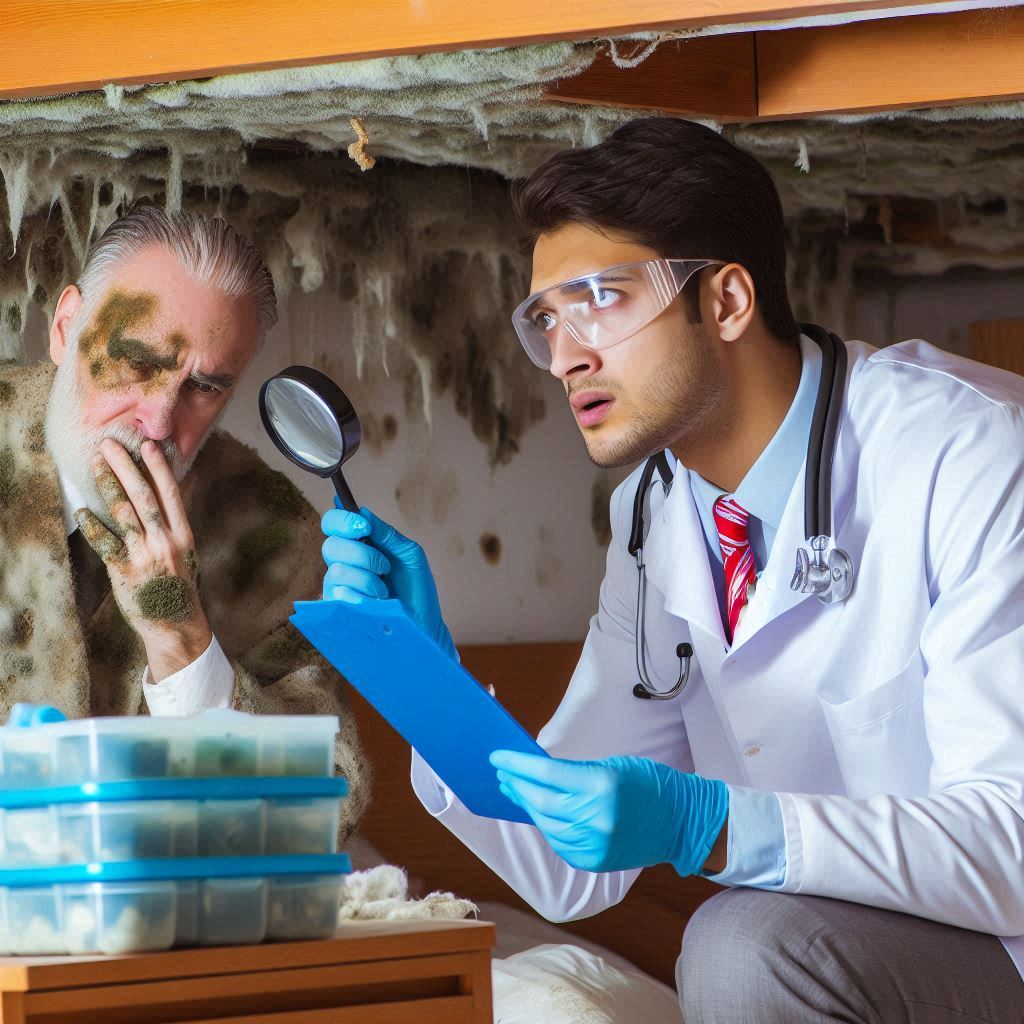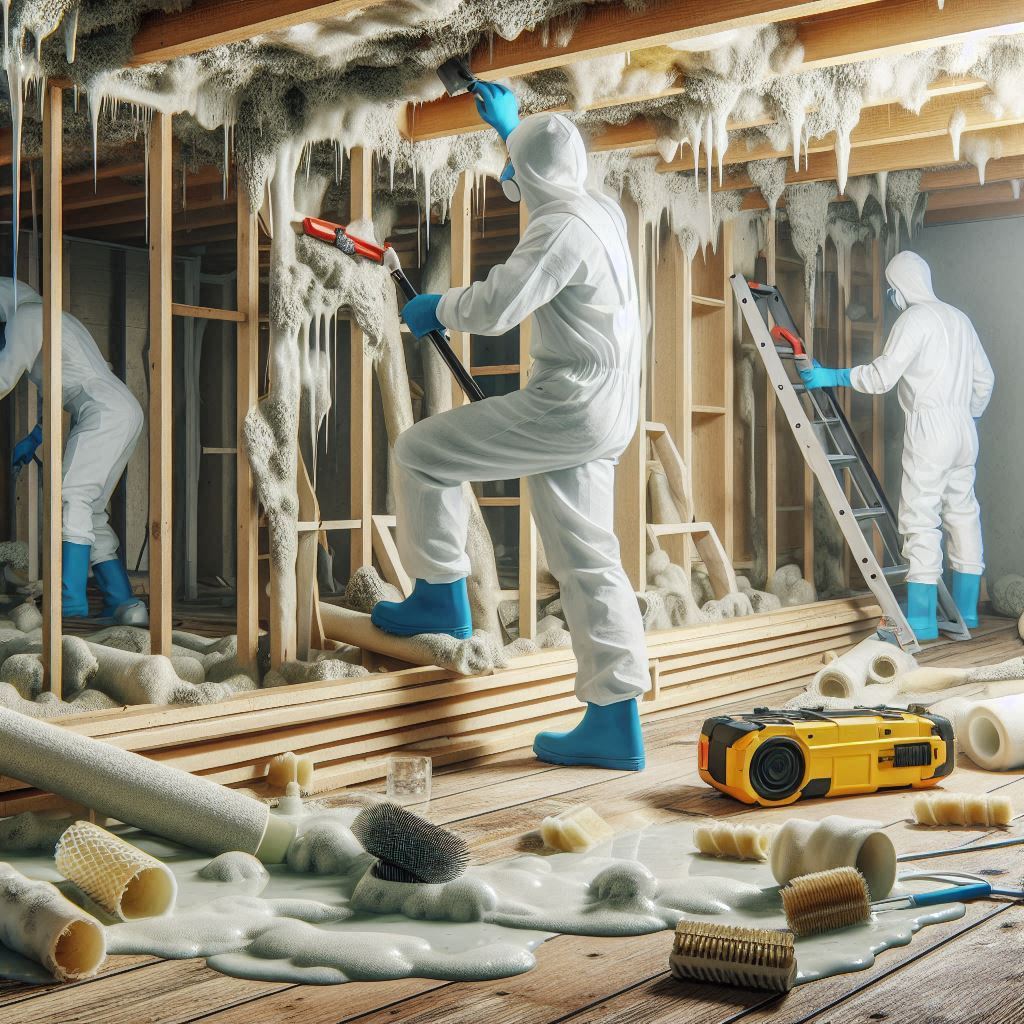Mold Mitigation vs. Remediation – Difference and Why It Matters

When dealing with mold, homeowners often hear two terms thrown around: mold mitigation vs remediation. At first glance, they might seem interchangeable—like “tomato” and “tomahto”—but they’re anything but. Understanding the difference between mold mitigation and remediation can save you money, stress, and a potentially unnecessary musty aroma wafting through your home.
What Is Mold Mitigation?
Mold mitigation is all about stopping the madness. It focuses on preventing mold from spreading further into your home. Think of it as putting up sandbags before a flood—it doesn’t remove the water, but it stops the situation from getting worse.
Key steps in mold mitigation include:
i. Isolating the affected area to prevent spores from traveling.
ii. Using specialized equipment like air scrubbers and HEPA filters to clean the air.
iii. Addressing the moisture source that allowed mold to grow.
This process is ideal for emergencies, where immediate containment is necessary to stop mold in its tracks.
What Is Mold Remediation?
Mold remediation, on the other hand, is the heavy lifter. It doesn’t just contain mold; it removes, cleans, and repairs the damage it caused. Remediation typically involves:
i. Removing contaminated materials like drywall or carpeting.
ii. Deep-cleaning with antifungal solutions.
iii. Repairing or replacing affected structures.
It’s not just about making your home look nice again; remediation ensures that mold won’t be returning to haunt you like an unwelcome houseguest.

Mold Removal vs. Remediation: Are They the Same?
Ah, the age-old question: is mold removal just a fancy way of saying remediation? Not quite. While mold removal sounds straightforward—get rid of all the mold—it’s almost impossible to achieve 100%. Why? Because mold spores are naturally present in the air, even in clean environments.
Mold remediation, however, aims to return mold levels to a safe and manageable baseline. It’s less about extermination and more about restoring balance.
Key Differences Between Mold Mitigation vs. Remediation
1 – Purpose:
i. Mitigation: Focuses on containment and prevention.
ii. Remediation: Targets elimination and restoration.
2 – Timing:
i. Mitigation: Performed quickly to stop mold from spreading.
ii. Remediation: A longer, more thorough process that follows mitigation.
3 – Scope:
i. Mitigation: Immediate actions, such as sealing off areas.
ii. Remediation: A comprehensive clean-up and rebuild.

When Should You Choose Mold Mitigation?
If you notice mold and want to avoid it spreading to other parts of your home, mitigation is your first line of defense. It’s a quick and necessary step to protect your family and property while planning the next course of action—remediation.
For example, addressing mold found in your basement after a minor flood would first involve mitigation to stop further damage.
When Should You Opt for Mold Remediation?
If the mold infestation is extensive or has already caused damage, remediation is the way to go. This approach goes beyond containment, addressing the root cause and repairing the impact.
For professional mold remediation services in Allentown, visit our experts.
The Cost Factor: Is Mitigation or Remediation More Expensive?
It depends on the extent of the mold problem. Mitigation tends to be less costly since it focuses on containment rather than repairs. However, skipping remediation when needed could lead to bigger expenses down the road, as untreated mold can cause structural damage and health issues.
An Expert’s Perspective
Whether you’re dealing with a small mold issue or a large-scale infestation, the right approach makes all the difference. Choosing between mitigation and remediation depends on the severity of the problem and your long-term goals for your home’s safety.
For Allentown residents, trust our team to guide you through the process. Whether it’s mitigating the problem or fully remediating the damage, we’ve got your back.
To learn more about mold safety standards, check out the EPA’s guidelines on mold remediation.
If you’re curious about the cost of professional remediation, explore our guide: Mold Remediation in Allentown.
Closing Thoughts
When it comes to mold mitigation vs remediation, the key takeaway is to act quickly and choose the solution that addresses your specific needs. Mold might not knock politely before entering, but with the right plan, you can kick it out and keep your home safe.